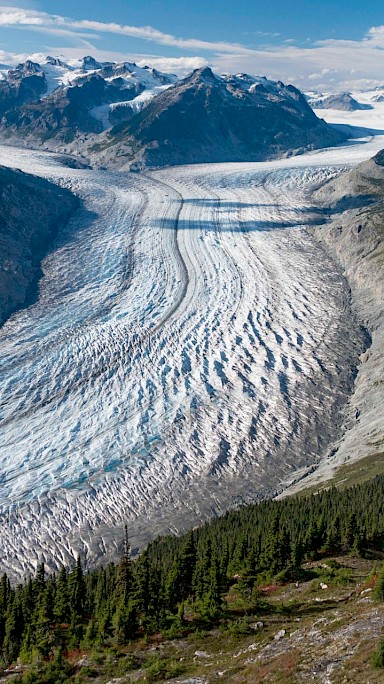The big melt
 B.C.’s disappearing rivers of ice
B.C.’s disappearing rivers of ice
The climate crisis is shrinking glaciers around the globe at a rate that startles even scientists who study the process. In British Columbia, the transformative effects extend from mountaintops, down valleys and into coastal waters. The more experts learn about what’s happening, the more they realize the complex, challenging implications of The Big Melt.
Brian Menounos, a glaciologist based at the University of Northern British Columbia and a Hakai Institute affiliate, is sounding the alarm. It’s his job to document the glacial decline, and provide the best information possible to prepare for a future when the critical benefits we reap from healthy mountain ice are no longer available.
Menounos is working with UNBC, Hakai Institute and B.C. government hydrologist Bill Floyd on a project to study how the cryosphere — a term referring to frozen water in its many forms, including snow, river ice, and glaciers — is changing.
Using space-borne optical imagery, Menounos and his collaborators in 2018 for the first time detected a massive loss of glacial mass across much of Western North America during the last 20 years, including a four-fold increase in rate of glacial melt in just the last decade.
Nowhere is the situation more dire than along the south and central Coast Mountains, a string of peaks that run from Vancouver to southeast Alaska.
Menounos says the demise of our glaciers is being driven by two things: warmer temperature trends across the region, and less winter snowfall. He and his colleagues are particularly interested in how the timing and volume of fresh water from the cryosphere is changing as our climate changes.
You can return to the main Market News page, or press the Back button on your browser.

